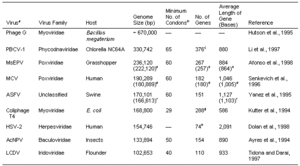Molluscum contagiosum
For the course duration, the article is closed to outside editing. Of course you can always leave comments on the discussion page. The anticipated date of course completion is May 21, 2009. One month after that date at the latest, this notice shall be removed. Besides, many other Citizendium articles welcome your collaboration! |
| Molluscum Contagiosum Virus | ||||||||
|---|---|---|---|---|---|---|---|---|
| [[image:|200px|]] | ||||||||
| Scientific classification | ||||||||
|
Introduction
Molluscum Contagiosum Virus is a poxvirus, which is a member of the family Poxviridae. Poxvirus are viruses that can be a family that infect both vertebrate and invertebrate animals. Molluscum contagiosum is a viral infection that seems to cause lots of papules or nodules on the skin. This disease it thought to infect humans only, but there has been cases where they found animals with Molluscum Contagiosum. This virus is said to be most common in children, but is found in sexually active adults, and those that are not immuned.
Description and Significance
Taxonomy
To explain this further, Molluscum Contagiousum is a poxviruses from the family of Poxviridae. There are four genera, which are Orthopox, Parapox, Yatapox, and Molluscipox. Molluscipox gives rise to the virus Molluxcum Contagiosum. The name for Poxviridae viruses comes from the original grouping of the virus related with the disease that produced poxes on the skin. The subfamily is Chordopoxvirinae, with the Genus Molluscipoxvirus, and the species being MCV. Types of Viruses for each genera: Orthopox: variola virus, vaccinia virus, cowpox virus, monkeypox virus, smallpox ; Parapox: orf virus, pseudocowpox, bovine papular stomatitis virus; Yatapox: tanapox virus, yaba monkey tumor virus; Molluscipox: molluscum contagiosum virus (MCV).[1]
Genome Structure
Genome information on various viruses. [2]. By the colaboration of information from experiments conducted by Tatiana G. Senkevicha, Eugene V. Kooninb, Joachim J. Bugertc, a, Gholamreza Daraic and Bernard Mossa, we discovered that the Molluscum Contagiosum Virus is a non-segmented molecule of double-stranded linear DNA with 180,000 to 200,000 nucleotides.[3] As of recent, 160 genes are identified which is discovered to encode 182 proteins.
Pathology
Prognosis
Current Research
Reference
- ↑ http://en.wikipedia.org/wiki/Poxviridae
- ↑ Etten, James L. Van (2002)
- ↑ Tatiana G. Senkevicha, Eugene V. Kooninb, Joachim J. Bugertc. Received 18 February 1997; revised 26 March 1997; accepted 15 April 1997. ; Available online 12 April 2002. http://www.sciencedirect.com/science?_ob=ArticleURL&_udi=B6WXR-45K15Y8-6D&_user=10&_rdoc=1&_fmt=&_orig=search&_sort=d&view=c&_acct=C000050221&_version=1&_urlVersion=0&_userid=10&md5=54d0c349fe732cbe9bf360a3a8090d03#bm4.1

